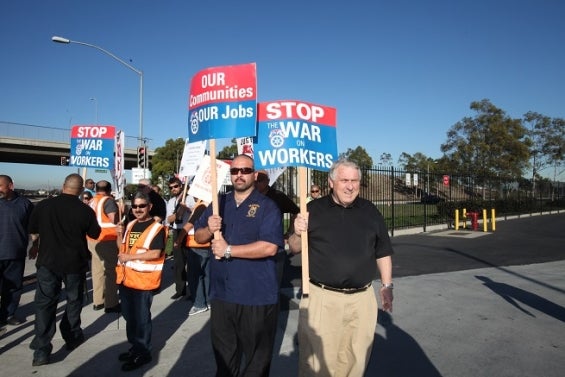Headline News
Corporations See an Income Divide, So Why Doesn’t Congress?

Income inequality is an issue that is receiving increased attention, especially after President Obama addressed the matter during his State of the Union speech last week. Even big business is admitting that their numbers show there is a growing problem in the U.S.
The New York Times reports today that mid-level retail and restaurant chains are being replaced in New York City and nationwide by high-end level businesses which are catering to booming income growth by America’s wealthiest residents. In fact, the article states that Wall Street analysts have had proof for some time that businesses are shifting away from serving the middle class and turning to focus on both the upper and lower classes of society.
“As a retailer or restaurant chain, if you’re not at the really high level or the low level, that’s a tough place to be,” John G. Maxwell, head of the global retail and consumer practice at PricewaterhouseCoopers, told the newspaper. “You don’t want to be stuck in the middle.”
A new study by Barry Z. Cynamon and Steven M. Fazzari of Washington University backs that up. It notes while spending by the top five percent has grown by 17 percent since the end of the last recession, it has only grown by one percent by the rest of U.S. households.
“We argue that demand drag caused by inequality is now constraining the U.S. economy,” the authors wrote. “The result is aggregate consumption substantially below comparable trends for past U.S. recoveries.”
Lawmakers, however, continue to fail their constituents when it came to lending them support. Whether it was letting long-term unemployment benefits lapse or cutting food stamp benefits, Congress has been quick to bring out the axe against rank-and-file workers. Meanwhile, the U.S. is fourth in the world when it comes to wealth inequality.
It’s time for elected officials to wake up and listen to the thousands of workers that have raised the issue of income inequality in the last year. Whether it was Teamster-backed port truck drivers or those working in warehouses, retail or fast-food restaurants, low-wage workers engaged in walkouts and demanded respect from employers through the right to organize and higher salaries.
Rank-and-file workers and corporate America agree – the U.S. is divided by an income gap. It’s time for Congress to address it so this country can create an economy that works for everyone.